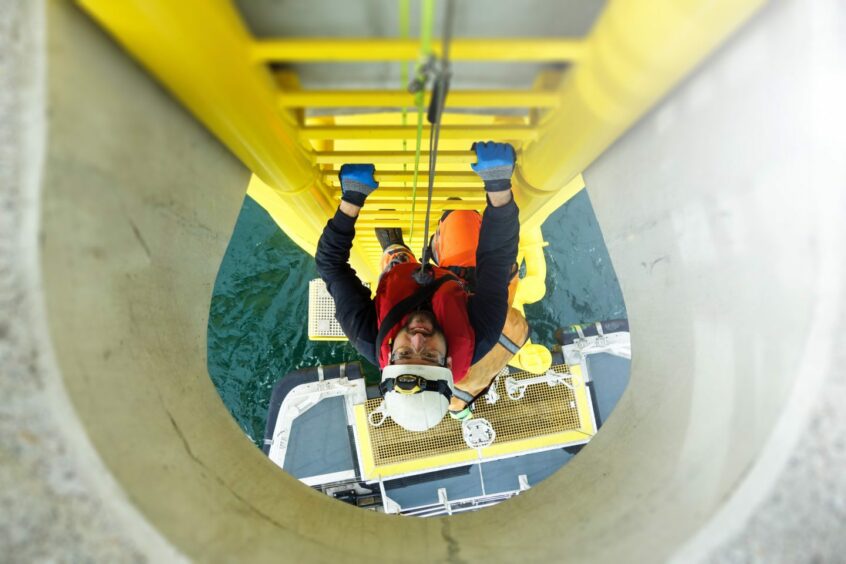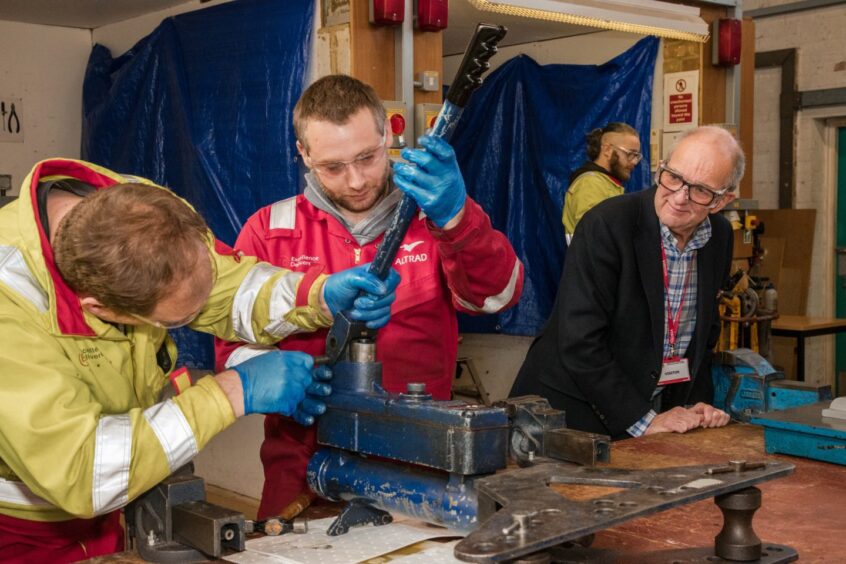
A total of 24 technicians across the oil and gas and wind sectors will take part in a cross-sector training programme to bridge skills gaps.
The Engineering Construction Industry Training Board (ECITB) will take onboard two cohorts of 12 industry electrical, mechanical and instrument and control technicians across Aberdeen and Grangemouth to promote cross-sector transferability between oil and gas and wind operations and maintenance.
Andrew Hockey, CEO of the ECITB, said: “Oil and gas will need to continue, certainly in the short and medium term, and we need to ensure the industry has the skilled workforce it needs to deploy to both existing oil and gas fields as well as onshore and offshore wind.
“This programme can create opportunities for our UK supply chain companies to diversify their energy portfolios and ensure the continuing development of a competent and competitive wind energy supply chain.
“The ECITB is providing additional funding for employers to support this cross-skilling of the workforce.”
Job cuts and recruitment shortfalls
The programme, carried out in partnership with the Offshore Renewable Energy (ORE) Catapult, aims to tackle the Offshore Wind Industry Council’s forecast 4,500-person shortfall in skilled operations and maintenance roles needed over the next five years.
The initiative will target those already trained in industry positions to ensure that workers can move between sectors to meet skills demand.
An ECITB spokesperson told Energy Voice: “A wind turbine maintenance technician requires skills and competencies across all three technician pathways when working in the nacelle of wind turbines.
“This programme allows cross-skilling of the required competencies so that workers can be deployed across both oil and gas and wind assets enabling an agile workforce to service operations and maintenance activity of both sectors.”
This comes as the first wave of redundancies at the Grangemouth oil refinery was announced.
The move to cut 400 jobs at Scotland’s only oil refinery over the next three to 18 months was labelled a “national disgrace” by unions as MP for Alloa and Grangemouth, Brian Leishman, said the redundancies were the “definition of an unjust transition”.
Additionally, Unite the Union recently raised concerns that North Sea operator Repsol (BME:REP) could cut up to 2,000 jobs amid a review of its ageing offshore production assets.
The news came nine months after the firm announced around 100 job cuts at its Aberdeen offices following Sinopec’s exit from the North Sea joint-venture.
Tackling recruitment challenges
ECITB’s latest workforce census found that 71% of firms in the engineering construction industry (ECI) have experienced recruitment challenges.
However, ECITB said that the renewables sector witnessed “rapid growth” since the last census in 2021 as it nearly doubled its share of the ECI workforce – its in-scope workforce share jumped to 6.2% of the industry.
Hockey added: “It is vital we maintain the appropriate standards of technical skills and behavioural safety across the engineering construction sectors and the two-way transition of skilled workers between sectors will help improve safety, workforce mobility and the resilience of the industry.”
Late last month the UK Government announced the launch of the much-delayed energy skills passport.
A pilot stage of the energy skills passport, which has been planned since 2022, opened for oil and gas workers to sign up and connect their verified skills and experience to relevant opportunities in renewables in January.
The latest ECITB programme aims to work hand-in-glove with this campaign through the ‘Connected Competence scheme’ which will be recognised by the passport system “when the full version becomes available later in the year,” a trade body spokesperson explained.
Supply chain organisations and wind farm developers can now register for the six-week pilot programme.
Cross-sector working is ‘vital piece of the jigsaw’
Tony Quinn, Director of Technology Development at ORE Catapult, said: “Making it as easy as possible for workers to transfer skills and knowledge from the oil and gas sector into offshore renewables is a vital piece of the jigsaw when it comes to supporting our energy transition and journey towards Net Zero.
“By enabling the use of our Levenmouth Demonstration Turbine to enrich the experience of the workers cross-skilling into offshore wind, we’re able to offer a safe, controlled and realistic environment for those workers to hone the skills needed to make that transition.
“It also complements the activities of our strategic skills programmes as well as initiatives like the Fit for Offshore Renewables (F4OR) which helps the entry and growth of UK supply chain organisations into the wind industry.”
The F4OR programme certifies supply chain firms in the industry and signals the companies that are ready for business in the offshore renewables market.
Recommended for you


 © Jane Barlow/PA Wire
© Jane Barlow/PA Wire © Supplied by ECITB/ Dave Dodge
© Supplied by ECITB/ Dave Dodge